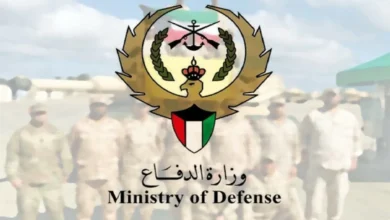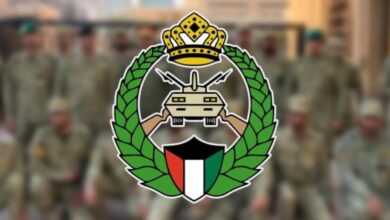Bank loans to customers with withdrawn nationalities reach KD 12 million
Banks face challenges when monitoring nationality withdrawal lists due to the absence of civil numbers, leading to confusion over similarly named individuals, prompting account freezes until the affected customer proves their identity.

• The number of affected individuals has now surpassed 1,600, prompting the potential need for a new banking category for these customers, tentatively labeled ‘doubtful new loans.’
• Banking recovery options for doubtful debts are limited to three scenarios, with the first allowing banks to freeze deposits or assets of borrowing customers who default or are likely to, and deduct installments while reserving the remaining balance.
• The value of loans allocated to the bank does not include the results from sorting the list of individuals whose nationalities were withdrawn, which was recently issued, totaling about 3,200 people.
A key question circulating among bank leaders is how to handle borrowing customers whose nationality has been revoked. What are the real risks involved, and is there anyone to compensate the banks for potential losses?
Today’s banking concerns have evolved significantly compared to the past. As the scale and risks associated with this credit tranche have expanded, legitimate banking worries have emerged. This topic has recently become a subject of discussion among banking policymakers, driven by the growing frequency of nationality withdrawals.
The number of affected individuals has now surpassed 1,600, prompting the potential need for a new banking category for these customers, tentatively labeled “doubtful new loans.”
Banking sources revealed to Al-Rai newspaper that the total value of loans for customers whose nationalities have been withdrawn is approximately KD 12 million. These loans are distributed among personal, consumer, and installment financings. Loan amounts vary by customer, with the maximum limit set at 95,000 dinars per customer, according to Central Bank of Kuwait regulations. It is important to note that the distribution of these loans is not uniform across banks; each bank’s share reflects its market share in individual loans.
Value of loans to increase in the coming period
The sources pointed out that the value of loans allocated to the bank in this regard does not include the results from sorting the list of individuals whose nationalities were withdrawn, which was recently issued, totaling about 3,200 people. The value of these loans is expected to increase in the coming period.
One of the most pressing questions among bank leaders today, including those whose nationalities have been withdrawn and those expecting future payments, is: What can the bank do with a borrower whose nationality has been revoked?
Recovery of doubtful debts
It is clear that the banking options for recovering doubtful debts in this regard are limited to three scenarios. The first relates to a borrowing customer who has deposits or financial assets held by the lending bank. In this case, according to the terms of the borrowing contract, the bank has the right to freeze the customer’s balances if they default or appear likely to do so. The bank can then partially deduct the installments while continuing to reserve the remaining balance, if available, in accordance with instructions prohibiting accounts and transactions for nationals.
Freezing the end-of-service reward
In this regard, sources referred to the bank’s approach of freezing the end-of-service reward of the borrowing customer, in alignment with the value of the loan obtained or its remaining balance.
This means that the scheduled payment is deducted on time from the customer’s accounts. However, the creditor bank cannot approach other banks to collect its debts; each bank is responsible for its own debts.
Priority in monetizing assets
The second option is judicial, where the creditor bank has the right to claim the assets of the borrowing customer, if any exist. However, bankers generally do not rely heavily on this scenario, as the priority in monetizing assets goes to collecting privileged debts, such as government debts.
Collection of debts
The third option relates to the government’s decision to classify banks alongside state entities, requiring an acquittal before lifting the restrictions on transactions for individuals whose nationalities have been withdrawn. This allows banks the opportunity to collect their debts, or at least a portion of them, if the customer is solvent and has sufficient financial resources to cover the state’s debts, if applicable, followed by any outstanding bank debts.
Until the picture becomes clearer, bank leaders remain focused on sorting out the lists of borrowing customers whose nationality has been withdrawn. Their records are open to include more members of this category, which complicates efforts to determine the extent of future defaults.
Issue with civil numbers
On a related note, sources pointed to a problem banks face when monitoring the lists of individuals who have had their nationality withdrawn. Although banks continuously receive these lists, they are not always accompanied by civil numbers, which creates an issue with name similarities, sometimes even going back to the fourth grandfather. This can cause confusion when trying to identify the correct individual.
As a precaution, banks freeze the accounts of all customers with similarly named individuals. The affected customer must then prove they are not the same person.
Sources noted that this has already occurred in multiple banks, where accounts of several customers with similar names were frozen—one instance involved five customers with similar names.
Lifting the freeze on accounts
The sources also highlighted that when customers who were not affected by the nationality withdrawal presented proof, such as confirming their nationality status with the relevant department on the same day, the bank promptly lifted the freeze on their accounts.
The sources pointed to another issue related to the lists of names sent to banks, which include individuals whose nationalities were withdrawn before the invasion, many of whom lack civil numbers. Some of these individuals were listed as far back as the 1960s and 1970s, making it difficult for bankers to track their accounts.
They explained that this problem is becoming more pronounced for certain banks, especially those established after the nationality withdrawals of some individuals. However, this segment is very small, with the majority of these individuals either having passed away or not holding any accounts or claims.
Gulf businessman with revoked citizenship holds no financial positions in Kuwaiti banks
Banking sources revealed that a Gulf businessman, whose citizenship was recently revoked, does not hold any financial positions in Kuwaiti banks, either in terms of borrowing or depositing. As a result, he is not considered a concern for banks in Kuwait.
The sources also pointed out that the banks that previously had dealings with this individual stopped engaging with him after the global financial crisis of 2008. These dealings were very limited, and his status was later settled both accountably and legally. It is important to note that the unpaid debt crisis, which led to the pursuit of this individual, is unrelated to the Kuwaiti banking sector.
Withdrawn nationality customers dominated by government employees with VIPs secured by guarantees
The classification of customers whose nationality has been withdrawn varies, ranging from VIP customers to distinguished and regular ones. According to the sources, most of this segment consists of government employees who primarily rely on their salaries, with some holding minimal balances or deposits. This limits creditor banks’ ability to deduct their dues.
The sources noted that VIP customers who borrow above the 95,000 dinar limit set by the Central Bank of Kuwait for individual financing typically have corresponding guarantees, such as real estate or shares, which reduce financing risks.
In contrast, some individuals whose nationality has been withdrawn are creditors to the bank due to their deposits, without having corresponding loans.
One percent of divorced customers entitled to rewards
The lists of customers whose nationalities were withdrawn do not exclude divorced customers who receive rewards from the Ministry of Social Affairs. However, according to sources, this segment is very limited, making up no more than one percent of the total borrowers whose nationality was withdrawn.












